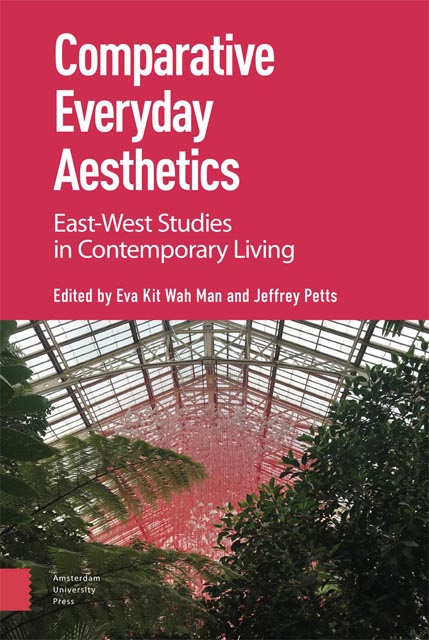Book contents
- Frontmatter
- Contents
- Living with Everyday Objects: Aesthetic and Ethical Practice
- Comparative Everyday Aesthetics: An Introduction
- Part 1 Living Aesthetically
- Part 2 Nature and Environment
- Part 3 Eating and Drinking
- Part 4 Creative Life
- Part 5 Technology and Images
- Part 6 Relationships and Communities
- Index
10 - Skill Stories from the Zhuangzi and Arts and Crafts: Aesthetic Fit, Harmony, and Transformation: Toward a Developmental, Comparative Everyday Aesthetics
Published online by Cambridge University Press: 18 October 2023
- Frontmatter
- Contents
- Living with Everyday Objects: Aesthetic and Ethical Practice
- Comparative Everyday Aesthetics: An Introduction
- Part 1 Living Aesthetically
- Part 2 Nature and Environment
- Part 3 Eating and Drinking
- Part 4 Creative Life
- Part 5 Technology and Images
- Part 6 Relationships and Communities
- Index
Summary
Abstract
Skill stories from the Zhuangzi – the cook’s, the woodcarver’s, and the wheelwright’s, among others – are stories of craftsmanship, describing displays of skill and awe-inspiring outcomes. Also, the stories are usually understood to show that the skilled worker acts instinctively and achieves success without knowing why. This chapter examines descriptions of skill stories from the Zhuangzi in a western, as well as Chinese, philosophical aesthetic light. That is, in terms of aesthetic concepts like ‘fit’ and ‘harmony’ that occur in the skill stories. Skill stories from the Zhuangzi and arts and crafts tend to a global idea of developmental aesthetics: an everyday philosophical aesthetics that embraces both individual cultivation and social progress while maintaining different cultural traditions of beauty and creative making.
Keywords: Zhuangzi, skill, craft, aesthetic experience, aesthetic education
Skill, Aesthetic Experience, and Development
Skill stories from the Zhuangzi – the cook, the woodcarver, and the wheelwright, among others – have been explained as “stories of craftsmanship,” describing “displays of skill” and “awe-inspiring outcomes.” Also, the stories are usually understood to show that “the skilled woodcarver, the skilled butcher … does not ponder … on the course of action he should take: his skill has become so much part of him that he merely acts instinctively … and, without knowing why, achieves success.” I examine descriptions of skill stories from the Zhuangzi – about craftsmanship, spontaneity, and successful outcomes – in a western, as well as Chinese, philosophical, aesthetic light. That is, in terms of aesthetic concepts like “fit” and “harmony” that occur in the skill stories, with the transformational value of aesthetic experience in mind.
In that spirit of inquiry, I concur with Thomas Merton's qualifications and admissions about the western use of ancient Chinese philosophy. His translations of the Zhuangzi are a “free interpretative reading” of two English, one French, and one German translation. Similarly, I take the skill stories at their translated face value, as it were. I start, like Merton, by simply liking what I read, the general humanity in the Zhuangzi about good work and living well. I have no intention of claiming to solve a Daoist paradox or problem with some western aesthetic solution. I see the developmental value for humanity in the aesthetic characteristics illustrated by the skill stories. And the task I set is, therefore, reconstructive rather than interpretive.
- Type
- Chapter
- Information
- Comparative Everyday AestheticsEast-West Studies in Contemporary Living, pp. 183 - 198Publisher: Amsterdam University PressPrint publication year: 2023

